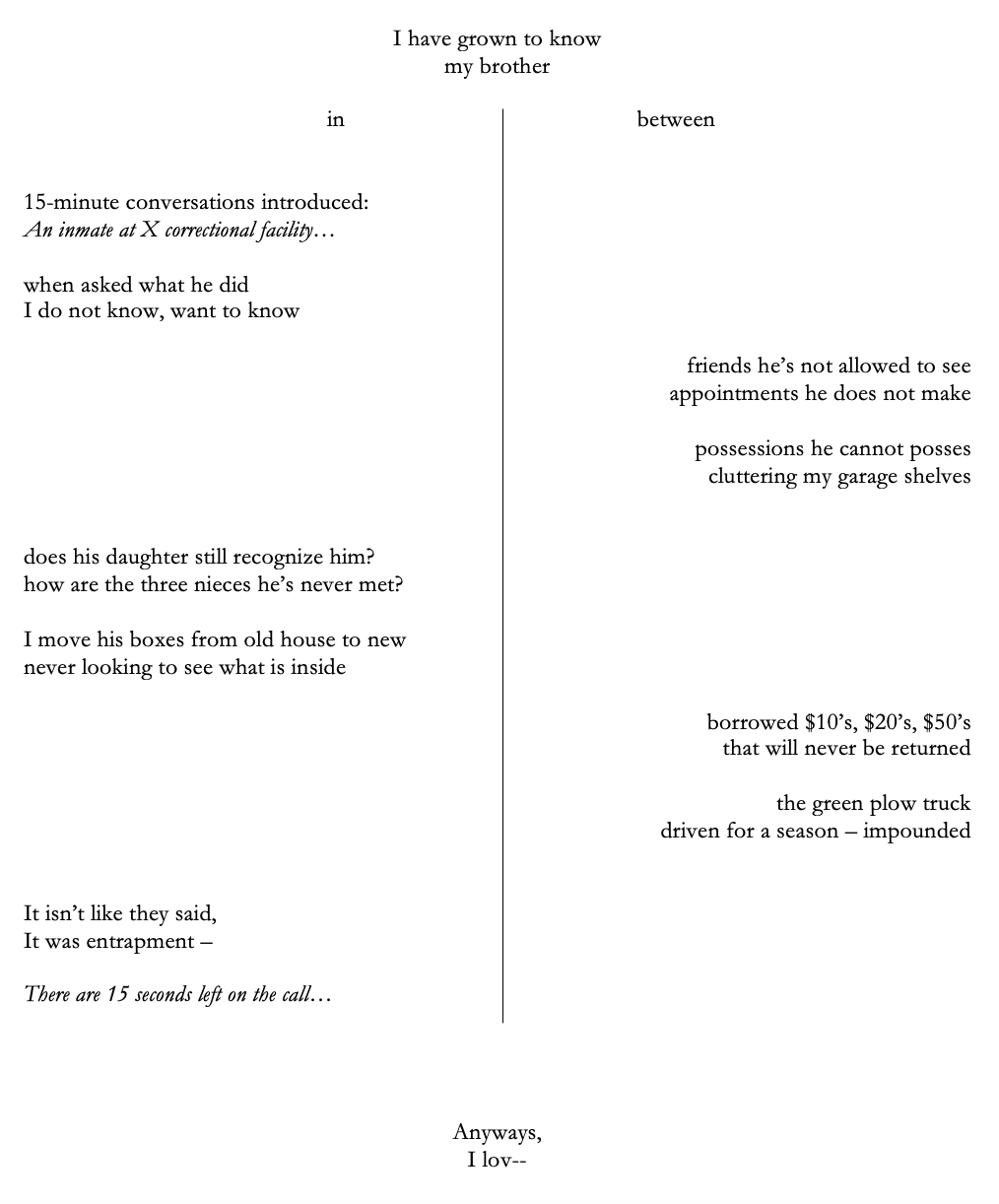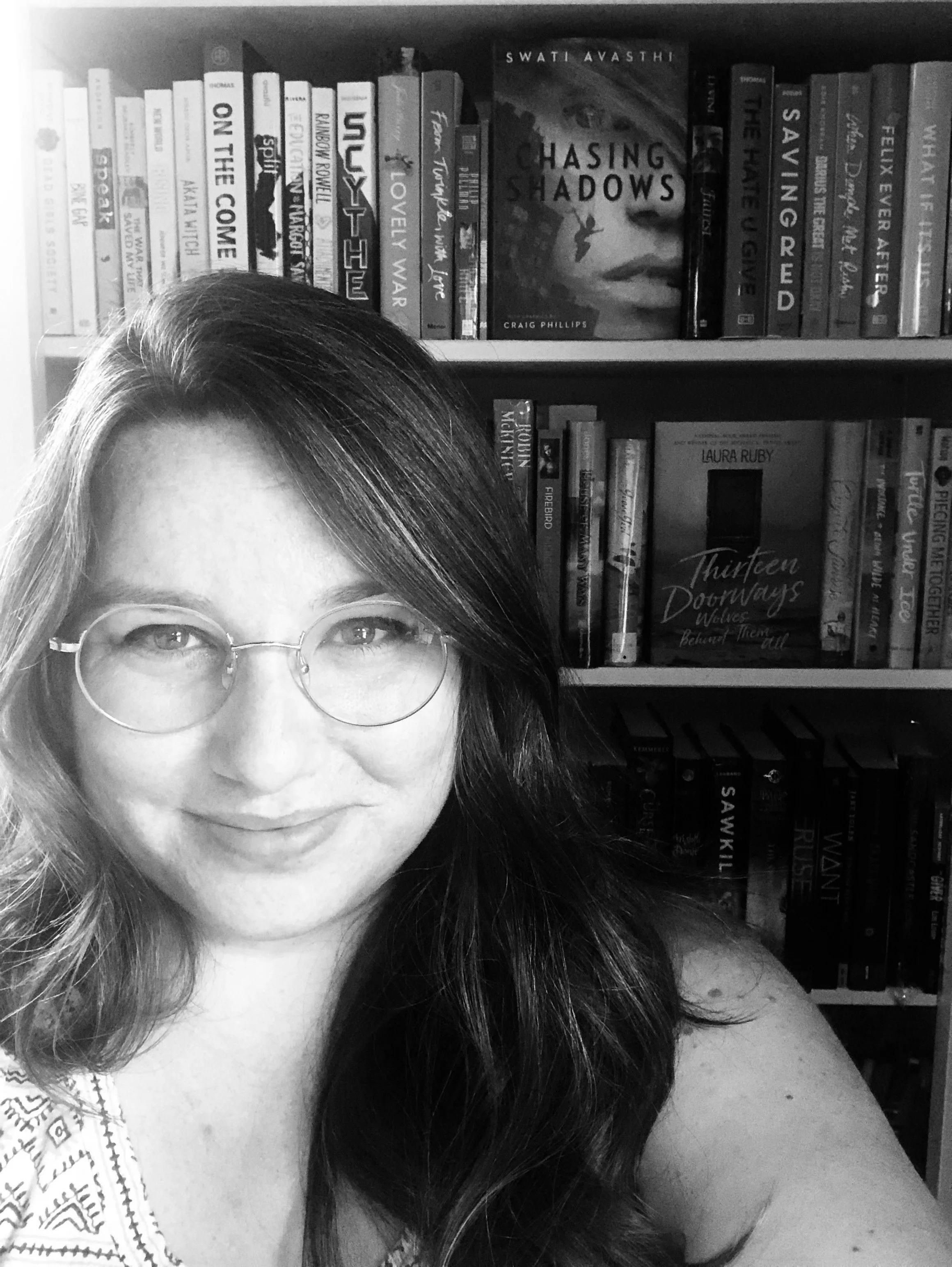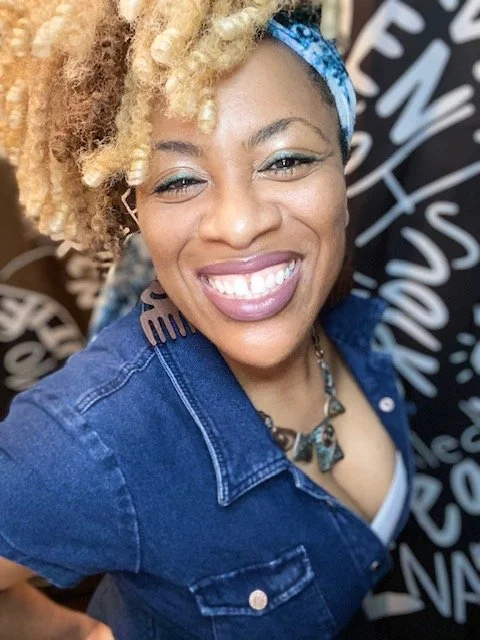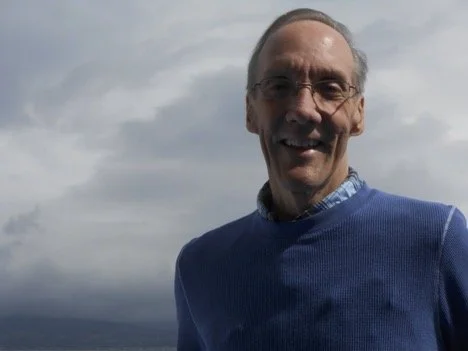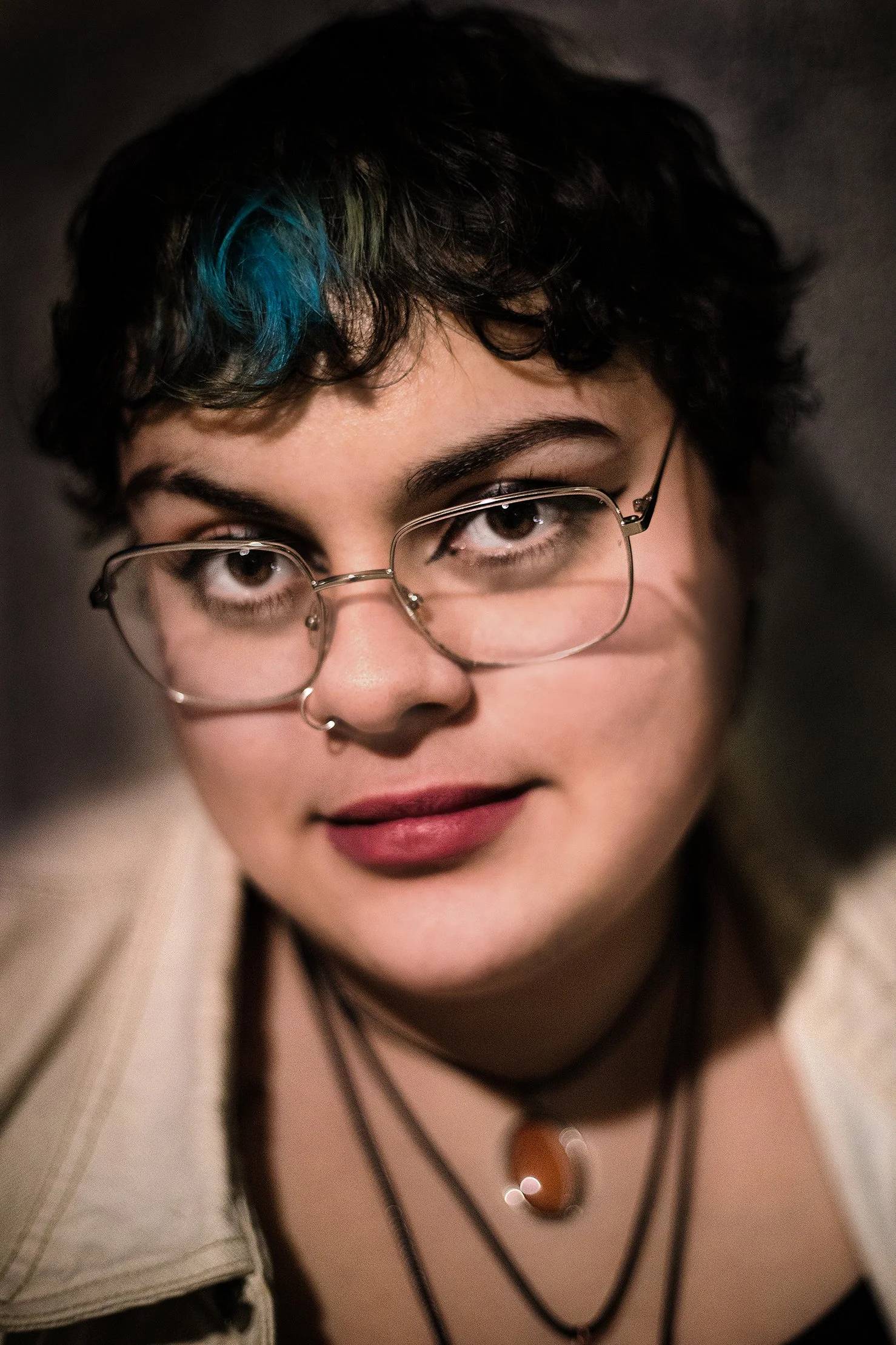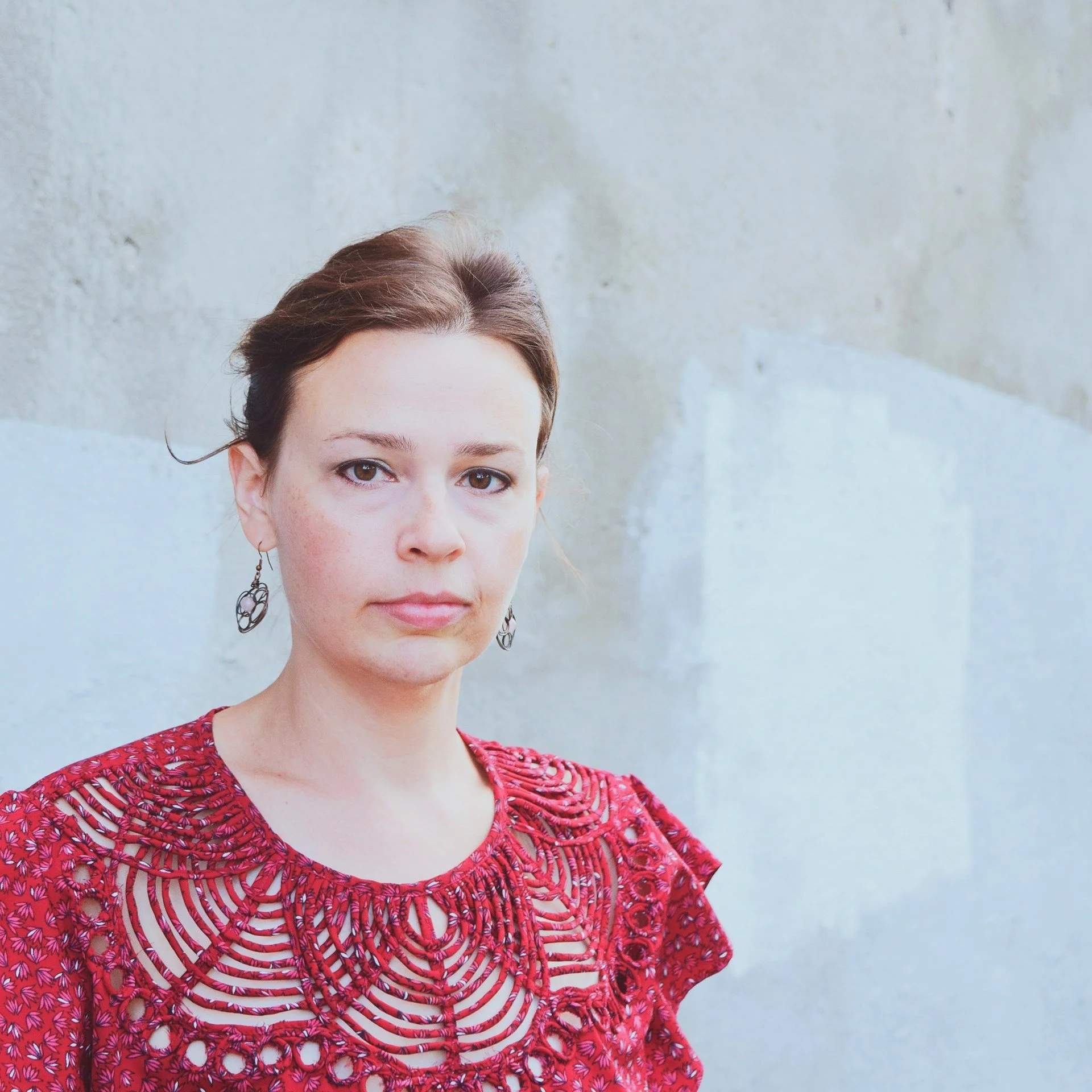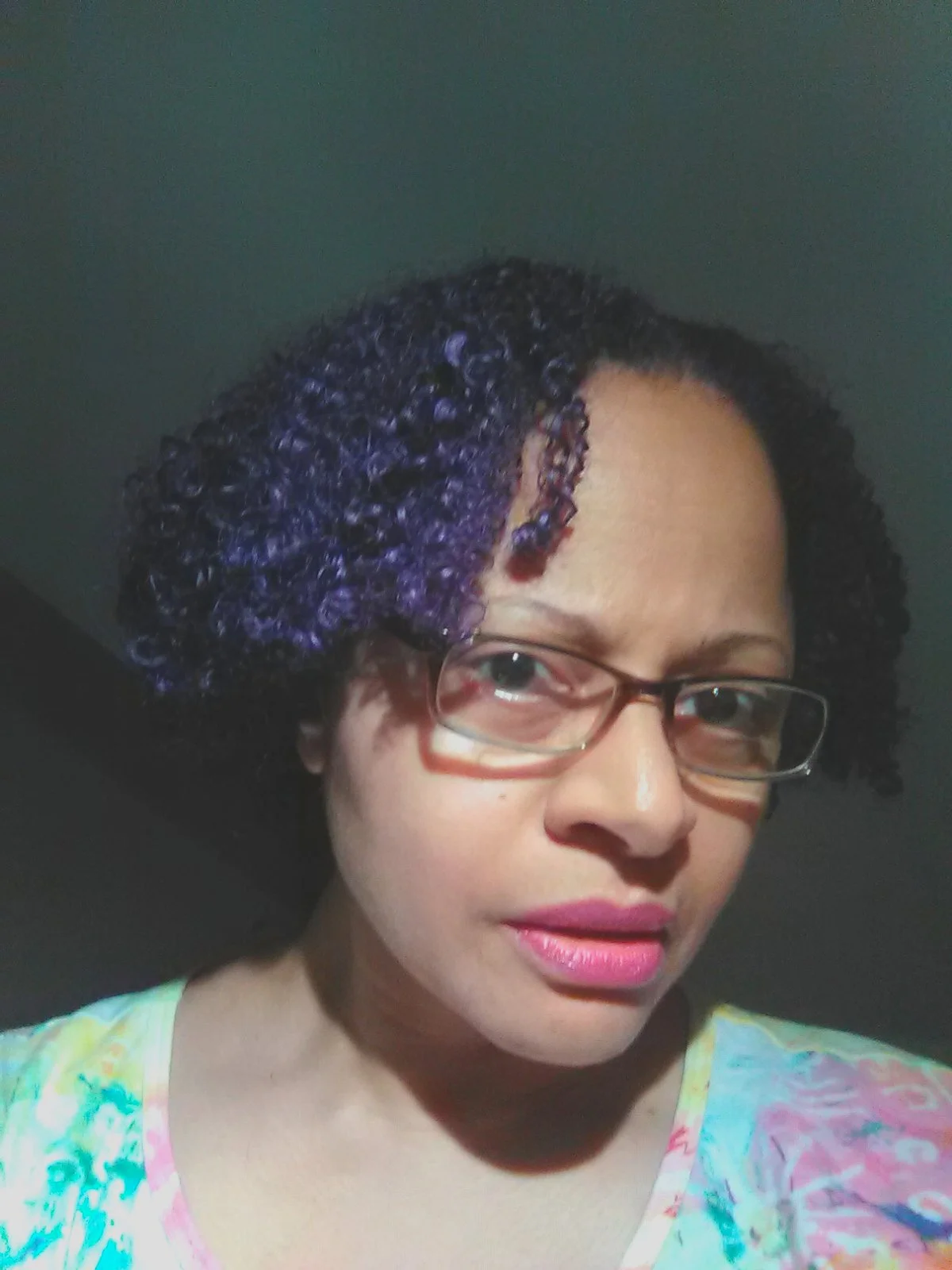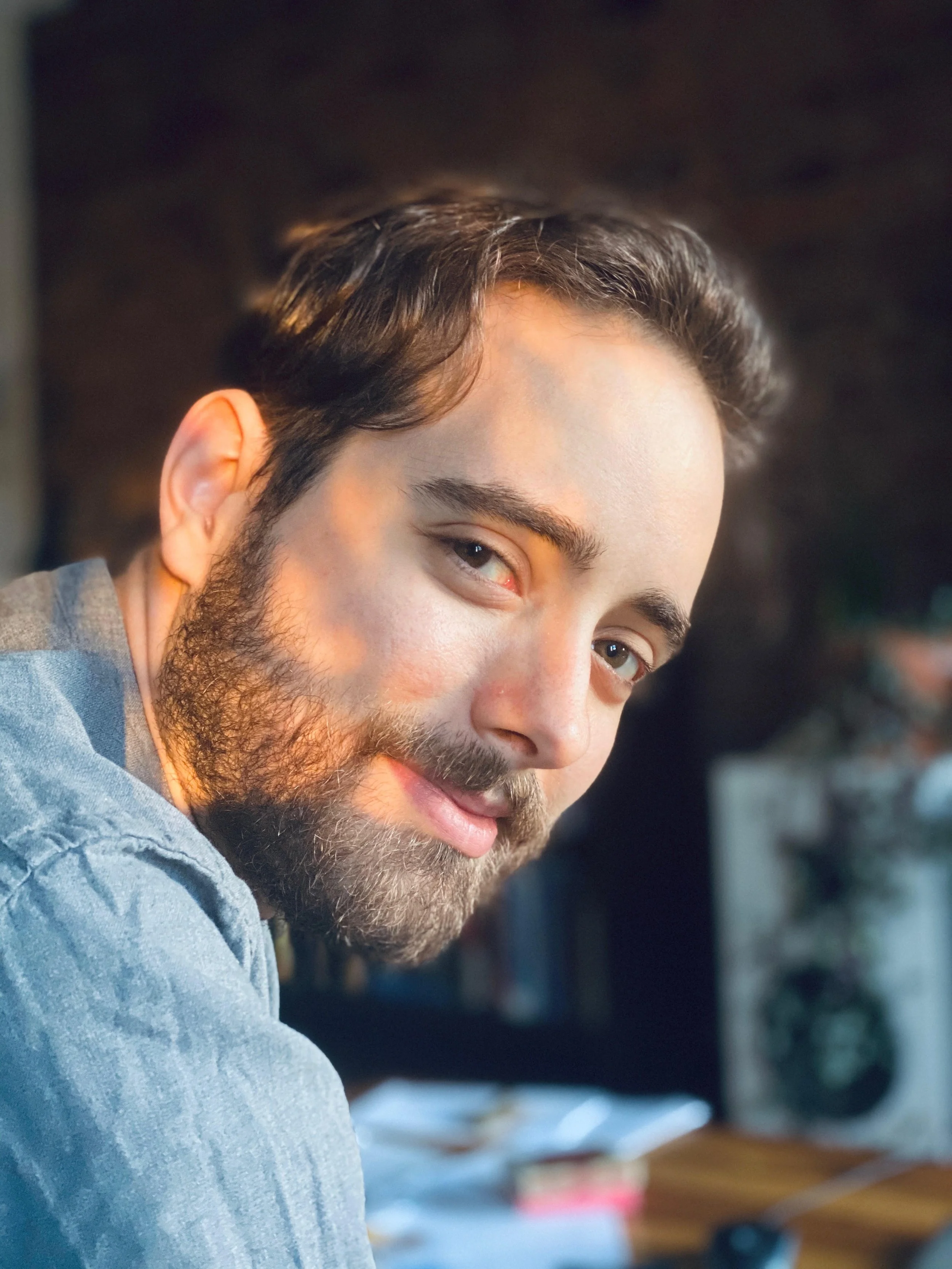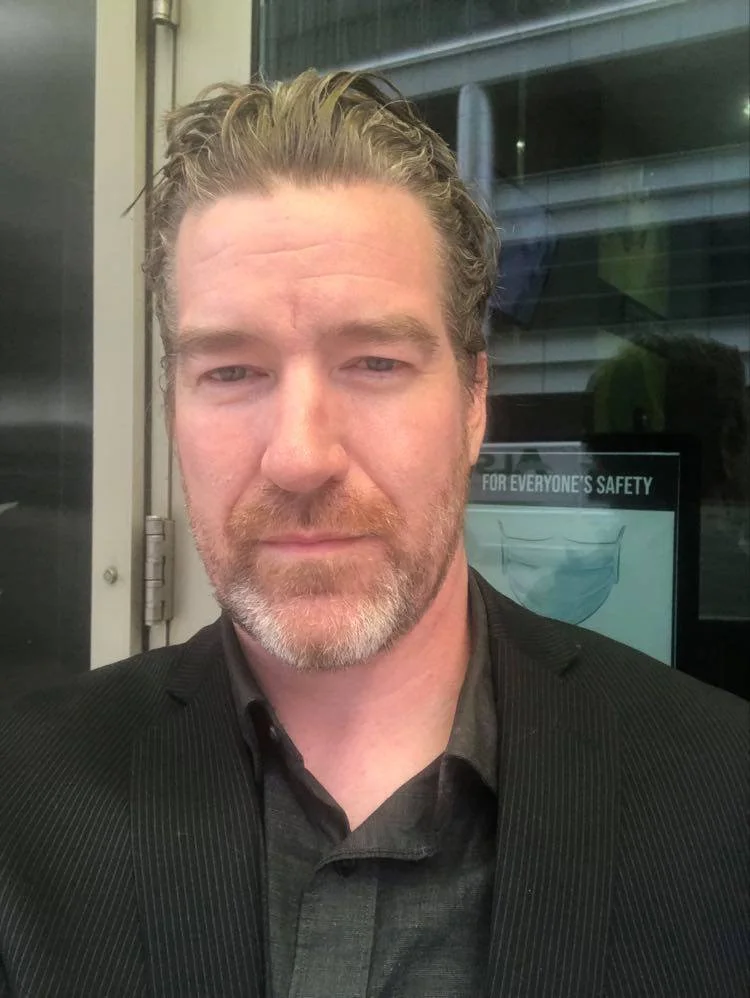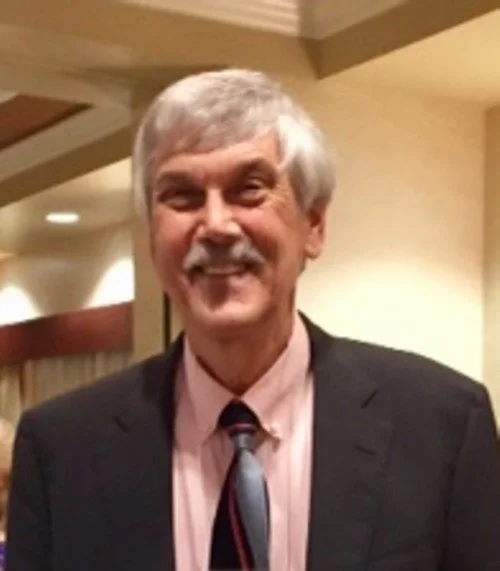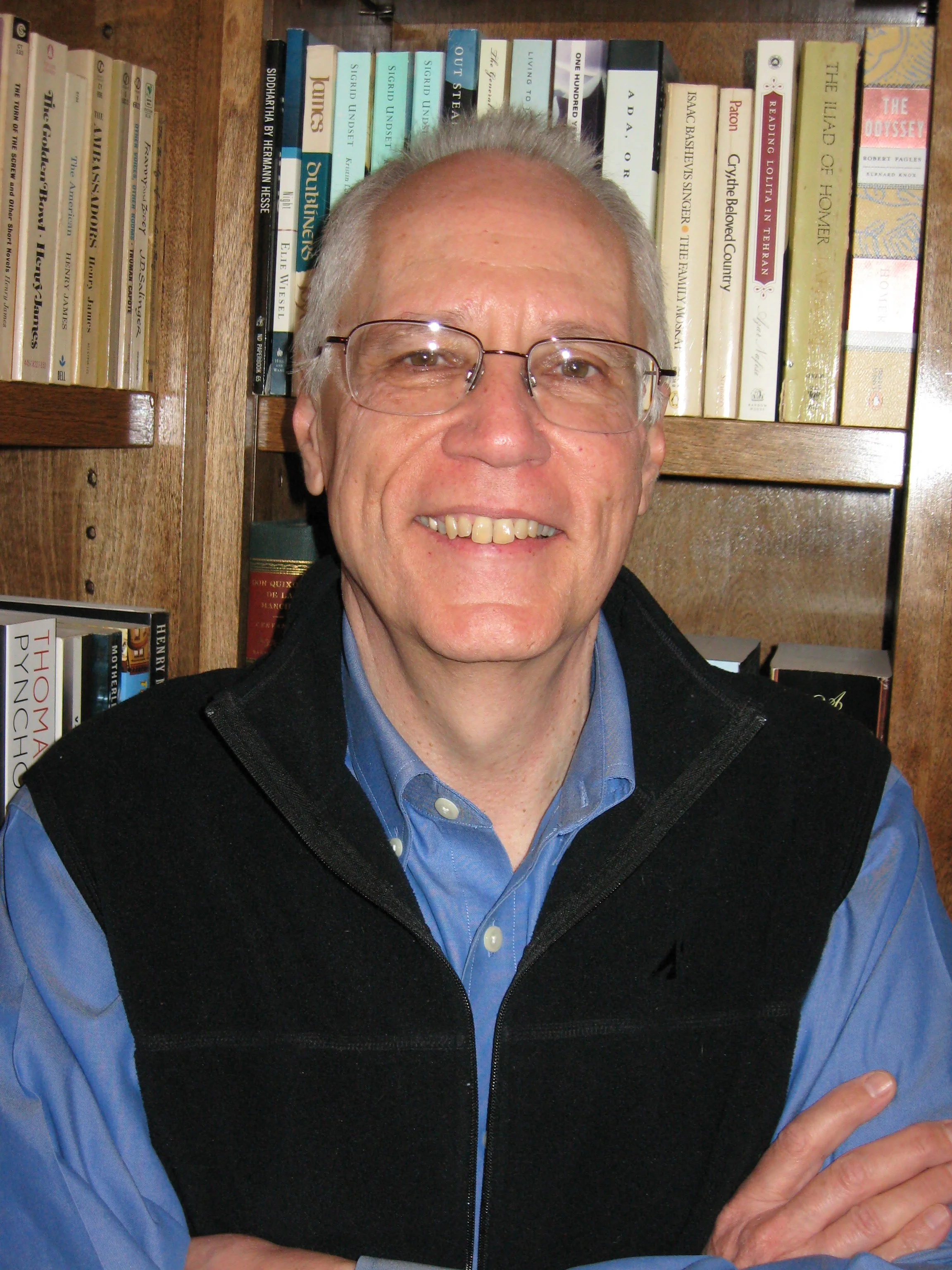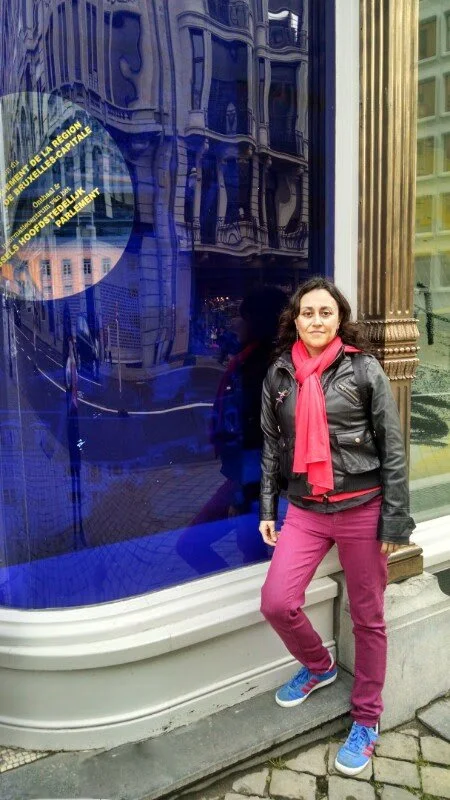Andrea E. Krause
A pillow made of knuckles
Gerard Robledo
Holding my breath, I check for warm drool.
Are your eyes still rolling under their lids,
like searchlights draped with thin skins?
My ear pressed over your chest
– a stethoscope. Breath across
your shoulder, my lips in your palm.
I feel the long lines of your sputtering air
tunnel your lungs, then a pause:
in the moment of your birth, watching
your waterlogged lungs wrung out,
the exodus through your mother
– a reverse drowning. Exiting suffocation
with a slap, your forced first breath
– the trauma of birth. The last internal connection
with your mother, the umbilical cord,
supplied oxygen, nutrients. Everything tightens
and closes. Your breath must happen, now.
Mother’s blood and oxygen no longer available,
you are suffocating for the first time
– this first breath you must take is my marrow,
it makes me yearn for thirty more years
carrying your tiny wails & voice inside me,
behind my breast bone, pattering
next to my heart. That ardor halts
my razor’s horizontal movement when I shave.
You kick off the blankets I secured
under your delicate elbows, curl yourself
inward – my tangled Pill bug,
knees tucked, hands wedged between sheet
& cheek: a pillow made of knuckles.
their rounding end, almost brash,
jutting with the edge of breath,
like a sudden infant death: the syndrome
I still fear at your twelfth birthday.
Thank God she’s not a man,
and she’s half white, my mother said.
Uncountable numbers of breaths taken
since your birth. How many until my last? Following
the dependable raise & drop of your chest,
the quakes in my palms steady. I use
your sweat to anoint myself with a cross
– two lines intersecting above my eyes
where only I can feel its presence,
the spot my mother’s thumb carved,
while you rest huddled
like you’ve been crying alone all night.
Gerard Robledo is a Latino poet from San Antonio. He teaches Creative Writing at San Antonio College. His Spanish language poetry translations, poetry, and book reviews have been published widely. He was inducted in the San Antonio Poetry Archives at Palo Alto College, is a Macondo Writers’ Workshop Fellow, and recipient of the 2020 Eduardo Corral Emerging Latinx Writers Mentorship.@robledoelpoeta, @RobledoGerard
Technology & FingerPrints
Zorina Frey
Binary sensory
cannot sense when
it's time to slow down, speed up,
or pause
My hand controls muffled moans,
gripping technology
is an on & off thing
humming between wings, it sings
the song of ex-machina.
One tune.
One note.
It keeps going after I’ve arrived.
Feeling disconnected.
Fingers cheated
from the song of me. I am the key,
the notes in the music tinkering.
Replaced with technology
leaving me weak.
I'd rather play musical prints.
Zorina Exie Frey is an essayist, screenwriter, and spoken word artist working as a publishing content writer and digital designer. She is also an MFA candidate at Converse University studying Poetry and Creative Nonfiction. Her writings are featured in Shondaland, Shoutout Miami, Chicken Soup for the Soul: I’m Speaking Now and 2022’s The American Journal of Poetry. Socials: zorinafrey.com, FB, IG, & Twitter: @zorinaexie, LinkedIn: @zorinafrey
THEY DON’T KNOW I’M YOUR BOYFRIEND
Charles Becker
I want
no more lies
no sabotaging self-talk
I’m tired
and besides
you’ve taught me
how to get Black now
when pushed too far
by prejudice
and ignorance
so take for example
your wheelchair
and why we get
naked
to enjoy
the erotic moves
of disabled sex
cerebral palsied pleasures
and the success of our bodies
sweating youthful
yet again,
then afterwards
laughing to ourselves
I push, you roll
outside for some cool
air and enhanced smell
of our night-blooming jasmine,
neighbors walking by
smile approvingly
assuming
I’m your caretaker
but I grin, nod back
and whisper
under my breath,
No, we’re lovers
and in fact
when we’re together
he walks
on water.
Charlie Becker is a special education teacher and speech therapist who writes, teaches, and performs poetry with the Community Literature Initiative in Los Angeles. His poems about art, nature, friendships, and issues that impact the LGBT-Q community have been published by Passager, Silver Pinion, The Comstock Review, Oyster River Pages, and The Orchard Street
My Name is wolf (excerpt)
Chiwan Choi
i didn't know / that learning to love / another // was braiding lives / together /
intertwining / to keep / from unraveling // but the trauma / isn't without weight / and
bones fray / with breathing // i am slow / to learn / and i don't know how / now / to fall
// without collapsing / the world around me / having tied / so tight / all that i have
hoped / around my bones.
CHIWAN CHOI is the author of four books, The Flood, and the Daugher Trilogy—Abductions, The Yellow House, and the upcoming my name is wolf. He wrote, presented, and destroyed the novel Ghostmakerthroughout the course of 2015. Chiwan is a partner at Writ Large Press and The Accomplices. He is also the host of the podcast Are You There, Ghost? It’s Me, Chiwan. IG: @chiwan Twitter: @chiwanchoi FB: @chiwan
Born Bad
(erasure poem, taken from Sandra Cisneros’ The House on Mango Street)
Vicky Vargas Mojanoff
I will go to hell most likely,
My mother says.
Because of Lupe.
She was pretty. Dark.
Good to look at.
Swimmer’s legs.
Lupe.
Sick from the disease.
The bones. The bottles.
A thirsty lady,
The swimmer.
Imagine her,
clean,
not bent, not drowning.
Naked.
I don't know who decides to go bad.
There was no evil in her.
Wicked
was
me.
It could be true,
or maybe
the story that she think,
But I think
In her funny felt
one hand
in the other.
Sometimes you get used to the sick,
and the sickness.
This is how it was,
and this is why I think
it was me.
You had to pick somebody.
Vicky Vargas Mojanoff (they/them or she/her) is a poet, graphic artist, and illustrator from Southern California looking to breach the divide between these mediums and create something within that space that is fully their own. They explore topics such as queer self acceptance, spirituality, grief & loss, and the human experience in their work. You can find them at @vicky.vargas.m on instagram.
A Most Harmless Hour
Kimberly Ann Priest
The men are out working the fields, rolling hay into tight spirals,
then leaving them to harvest another day.
They dot the landscape like butterscotch pinwheels
I trace on the window with my finger
before walking outside to ornament my eyes
with the picturesque view.
The tractor slows into its cave under an awning. My husband
dismounts, wiping his forehead against the sweaty bare skin
of his arm. A smearing, a full bottle of water
drunk down, his body all heat.
Labor’s satisfaction starving the parts of him more animal—
less philosophic inquiry or need to muse over
an injury. The god-sent sweet exhaustion
that overcomes a soul when all its muscles have been used.
This is a most harmless hour—the tractor holding his ribcage
like a man steadying a woman worn from giving birth.
Kimberly Ann Priest is the author of Slaughter the One Bird (Sundress 2021) and the chapbooks The Optimist Shelters in Place (Harbor Editions 2022), Parrot Flower (Glass 2021), Still Life (PANK, 2020) and White Goat Black Sheep (FLP 2018). Her poetry has appeared in several literary journals including Salamander, Slipstream, Borderlands, RiverSedge, and The Berkeley Poetry Review and she is a winner of the 2019 Heartland Poetry Prize in the New Poetry from the Midwest anthology by New American Press. A former book reviewer for NewPages and intern with Sundress Publications, she is currently Assistant Professor of First-Year Writing at Michigan State University, and an associate poetry editor for the Nimrod International Journal of Prose and Poetry and Embody reader for The Maine Review.instagram: kimberlyannpriest.poet; twitter: @kimberlyann.poet
Poetry by Elsa Asher
Giving birth to death
early spring, a bridge built between us
in my saturated interior, a minuscule spinal cord
heartbeat, the beginnings of hands
in a writing workshop on west 13th street
something spilled out of me
in the bathroom i saw blood and cried
the next morning at home, a fist of cells
divided and multiplied, a folded unripe plum
bundled and split, slipped out of me.
midsummer, engulfed in nausea not daring to hope.
autumn, at the clinic on west 17th street
a blood test confirmed i was already nine weeks
i returned to my classes, and tried to work out a plan
we talked about moving upstate, or home to seattle
i dreamed of giving birth with the midwife
who caught me when i was born.
winter, at the end of my second trimester
i slept on a plane from los angeles, and two days later
i couldn’t remember when i had last felt the baby move
quickening; death inside my living body
a shudder when blood crossed the placenta
met resistance, turned back at the umbilical cord
shunted away from what was no longer alive
at the ultrasound there was no heartbeat
the sound of no sound louder than silence
as i gave birth, i turned and shook, i did not care
who heard me howling, i pushed her maroon body
soft and still between my legs i reached for her
long thin arms and legs, little hands and feet
her tiny fingernails, her small pursed lips
i held her to my chest as everything broke open.
uncover my heart
the first time i felt my breasts was in fifth grade
during morning exercise in the assembly hall
as i crawled across the floor on my belly
i realized my chest felt sore.
i wore big sweatshirts two sports bras
rolled my shoulders forward
i was sexualized and visible and afraid
i asked my parents for surgery to make my chest flat
they told me to wait until after i hit puberty.
the first time i had sex i didn’t want to take off my bra
when she went down on me i felt numb
i wanted to explode and for her to catch all the pieces
i wanted to be broken open and held whole.
during pregnancy my breasts grew larger
two days after i gave birth to my stillborn baby
i stood in the shower my breasts swollen
with milk for a baby who was not alive
an unspeakable fury.
i had breast reduction surgery
in my first semester of graduate school
in my second year of somatics training
i felt more grounded and centered.
i still wanted my chest to be flat
i wondered if the desire was a trauma coping strategy
did my breasts remind me
of my own experience nursing as a newborn?
so much flowed through that milk.
i thought i needed to understand the answer
to the question but i didn’t i realized
not everyone who had breasts wanted to cut them off
this helped me to remember that my desire was something.
on winter solstice i had top surgery
i felt my flat chest with the palms of my hands
gender euphoria! my ribcage the front surface of my body
like a revelation exposed in the best way
i wanted to uncover my heart.
Elsa Asher Khalfin is a queer and trans poet, and practitioner of somatics and Ivri healing ways. Their focus is on developmental and intergenerational trauma healing, and narrative medicine. Elsa taught Narrative Medicine at Columbia University and Touro University College of Osteopathic Medicine, and their work has been published in Mom Egg Review, The Intima, and Matter Press. Elsa grew up on Duwamish land and live in Lenapehoking. Find out more about Elsa at www.elsakhalfin.com and on Instagram: @autosomatography
Sonnet for the Knight of Cups
Danika Stegeman LeMay
You shuffle through leaves, head bowed, and conjure
autumn from what you’ve got at hand. The wind
plies the air to aster-entwined ribbons.
The stars twist in the sky, windows lit from
inside. I carry myself in segments
clacking. Parallel lines are equal but
never intersect. Our lungs fill but don’t
touch. The current can only throw arrows
one way: forward. You weep for what’s missing;
I’ll weep for what’s awake. Don’t look to me,
look to the river. The sun is rising,
and the leaves are falling to copper your
eyes. Knife’s edge I handle with no cuts, slit
the dark open. Paper the wind my way.
Danika Stegeman LeMay’s debut collection of poems, Pilot, is available from Spork Press. She lives in Minneapolis. Her work has appeared in 32 Poems, Afternoon Visitor, CutBank Literary Journal, Forklift, OH, Harpy Hybrid Review, Leavings, and Word for/ Word, among other places. Her video poem, “Then Betelgeuse Reappears” is an official selection for the 2021 Midwest Video Poetry Festival. Her website is danikastegemanlemay.com.
Mignuette
Mignon Ariel King
A lot of cosmic energy, from very few men,
considering thirty years and some change
as active, confirmed bachelor-woman. Oh,
I had a good time, with intermittent grief, a
small percentage of horror. Not to mention
a parade of freak roommates, propped up
by friends’ lists of raving loons, drunk ravens,
ravishing, forbidden roommate romps--all
of that added up to 50% of take-home pay
to establish "Chez Mignon," where friends
came after they'd missed the train home
from drunkfests in Cambridge. We drank.
They passed out on the borrowed couch.
I corrected papers from night courses till
3 a.m. off nights, got to my dayjob by 9
to teach myself computer programs while
answering two switchboards. And my best
lover broke up with yet another chicklet he
had fallen for. Thus, my current dude was
pink-slipped out of my queen-sized nirvana.
And. And. And. Friday nights I'd save for me
and Chopin, Vivaldi, Mozart...but usually my
favorite bubble-soaking serenade was from
Placido, with mignonette wafting from his lips.
Mignon Ariel King was born in Boston, Massachusetts and has never left her home time zone. An alumna of Simmons University who identifies as a womanist, she worked for a few decades as a database assistant by day (at a lot of companies that no artist cares to remember) and an adjunct English instructor by night.In 2011, King created Hidden Charm Press in memory of her mother. She founded Tell-Tale Chapbooks in 2013, publishing single-authored chapbooks of poetry as well as the print journal of narratives Tell-Tale Inklings. Her blog is MakingBooksRock (dot) wordpress (dot) com.
Fool’s GOld
darlene scott
He has his arm around your neck
in a chokehold of endearment.
You hold his forearm in both hands
like a prized fish, squint at the flash.
He will add you to his collection.
You gild him in yours. Walk out
of his release like you want to.
He is a fast ball you try to catch.
Stretch for it, feet off the ground,
shirt creeping over your navel.
He slams into you. You’ve been felled
by lesser men. Easy stuff: good teeth,
how they speak your name. He draws
it in watercolor. Is The List plus. Sun
in your eyes; all you’re sure of is the heat.
And there is Her. Not but. And.
Lip gloss, hips, plus crew’ed up.
As much as any girl needs at 19.
She gets the stories. You get him
clothed, unfiltered, sober and safe
the way your mother likes him.
Take every one of his phone calls
abide space between them; endure
a throb you sit to smother. Take his
naps in your lap, moon chasing,
ginger tea, a baseball cap that smells
like sweat and amber; gilt edges of him.
darlene anita scott is a poet and visual artist. Her recent writing appears, or is forthcoming, in the Curator, Mudroom, Simple Machines, and Obsidian. Her photography can be viewed at Auburn Avenue and Barren Magazine and her art at the West Review and The Journal. Scott co-edited the critical-creative volume Revisiting the Elegy in the Black Lives Matter Era (Routledge), and her debut poetry collection, Marrow, is forthcoming from University Press of Kentucky. Her internet home is at www.darleneanitacott.com, and sometimes she hangs out at Twitter (@darleneanita) and Instagram (@darleneanitascott).
Etymology of Me as a Human: a Bilinguacultural Poem
yuan changming
1/ Denotations of I vs 我
The first person singular pronoun, or this very
Writing subject in English is I, an only-letter
Word, standing upright like a pole, always
Capitalized, but in Chinese, it is written with
Seven lucky strokes as 我, with at least 108
Variations, all of which can be the object case
At the same time.
Originally, it’s formed from
The character 找, meaning ‘pursuing’, with one
Stroke added on the top, which may well stand for
Anything you would like to have, such as money
Power, fame, sex, food, or nothing if you prove
Yourself to be a Buddhist practitioner inside out
2/ Connotations of Human & 人
Since I am a direct descendant of Homo Erectus, let me stand
Straight as a human/人, rather than kneel down like a slave
When two humans walk side by side, why to coerce
One into obeying the other as if fated to follow/从?
Since three humans can live together, do we really need
A boss, a ruler or a tyrant on top of us all as a group/众?
Given all the freedom I was born with, why, just
Why cage me within walls like a prisoner/囚?
Yuan Changming grew up in an isolated village, started to learn the English alphabet at age nineteen and published monographs on translation before leaving China. With a Canadian PhD in English, Yuan currently edits Poetry Pacific with Allen Yuan in Vancouver. Credits include twelve Pushcart nominations & twelve chapbooks (most recently LIMERENCE) besides appearances in Best of the Best Canadian Poetry (2008-17) & BestNewPoemsOnline, among 1,909 others, across 48 countries. Yuan served on the poetry jury for Canada’s 44th National Magazine Award. http://poetrypacific.blogspot.com/
Fire Escape
Connor Douglas Rice
Yannick and I had no problem falling in love
during the pandemic. It's been two months to the day
since he sent me a GIF of an astronaut waving,
their body tethered to a space station orbiting Earth,
and one month to the day since we first met in person,
in the lobby of my building where we would spend
four days together. He was dressed in head-to-toe denim
and a face mask, behind which was a panic attack,
and in his hands were yellow and purple flowers,
the colors of my voice, and all the ingredients to prepare
chocolate chip cookies, minus one egg.
We can't go on dates, so we spend our time
on the fire escape, smoking weed and watching the light
seep out of the eastward sky between two rows
of apartment buildings. The tree that grows
from the concrete between the apartments,
five stories tall and flourishing in the narrowness of the alley,
is beginning to lose its leaves. Watch
the beating of pigeons’ wings as they slow,
their changing angles as they pump air forward like a brake
to light upon a red iron railing. Watch
the pigeon in freefall—Wile E. Coyote—wings
clasped at its sides until the last moment,
the limit of suicide's failed parabola, when they unfold
to arc it suddenly upward to land safely out of view.
Though it continues to benefit the few
at the expense of the many, this world is no one's dream.
There will be lost jobs and rare blood diseases,
pizza and polvorones, frigid rain, ash clouds migrating
from fires out west, a vacancy on the Supreme Court,
good sex, finally, and bad memories,
a new scale to measure pain,
a caterpillar with a name emerging from its fallen chrysalis
with wings too deformed for flight,
nights spent holding each other like stones
clinging to their crystals, the yellowed leaves
of a houseplant I can't figure out, plucked
so the nutrients flow to where it's greenest.
Connor Douglas Rice is a poet and political campaigner living in New York, NY. Follow him on Twitter: @CDouglasRice
thousandfurs
Stella Reed
I felt very strange when I put on my clothes—
a puddle tight with ice—
after reading the story
of the woman who made love to a bear.
I was nowhere and everywhere in my skin.
Thistle of his tongue, depth of his pelt.
In an empty parking lot, someone photographed
the moon, all her cold naked roundness, pocks
and scars, holes where cinders fell.
Just this morning, cranes flew in from Siberia
to peck at leftover grain in the fields near my home.
Just this afternoon the pharmacist leaned in to tell me,
Your testosterone is a controlled substance, handed me
the bag with the topical cream.
Then night came on with wind rushing in sheaves
of music, a small rain of notes. Dirty feet
of the heart, reaching hands of the heart
threaten too much want while running away
into the imagined arms of a bruin.
A small fractal of the moon’s aged light
winged into my window.
I could not sleep.
My skin melted down to stars.
Stella Reed (she / her) is the co-author of the AZ-NM Book Award winning, We Are Meant to Carry Water, 2019, from 3: A Taos Press. She is the 2018 winner of the Tusculum Review chapbook contest for Origami. In pre-pandemic times, Stella taught poetry to women in domestic violence and homeless shelters through WingSpan Poetry Project in Santa Fe, NM. You can find her work in various journals and anthologies, most recently: The American Journal of Poetry, Baltimore Review (2020 contest winner), About Place Journal, The Fourth River, Painted Bride Quarterly, and Terrain. She is a Best of the Net nominee for 2020 and holds an MFA from New England College. Stella works for Audubon Southwest where she is a proud member of the Queer Affinity Group.
ONE TRUTH OF CARING
ADAM DAY
If you become a stream, runaway,
my aunt told me. From then on, my body
was a card catalogue, the neighbor’s
bed, a used car lot. She stenciled
her naked self with cats’ eyes,
upholstered herself with maps
of the city’s waterways. Put me in a vanity
drawer; supplied charcoals, pastels,
oil paints. I etched with my nails
into the wood rot. Within those confines
I grew a bridge of teak, and armory
with awnings. I finally emerged
when I felt the woman had died.
She hung in city hall against
a marble wall, like a lung, a gang
from a gallows. I took her down
against the advice of officials,
chaplains; put her in the vanity
drawer and climbed in after.
I drew an iron caisson, built
a dock from the silt up, a boathouse;
wrought a black wig, crocheted
a lace collar, and watched her run away
down our dock, tumble into quiet water.
Adam Day is the author of Left-Handed Wolf (LSU Press, 2020), and of Model of a City in Civil War (Sarabande Books), and the recipient of a Poetry Society of America Chapbook Fellowship for Badger, Apocrypha, and of a PEN America Literary Award. He is the publisher of the cultural magazine, Action, Spectacle.
POLYAMORY
VIRGINIA SMITH
VA Smith lives in Fairmount, Philadelphia, her adopted city, where she reads and writes, walks and bikes, serves as a home chef/caterer, and loves on her family and friends. VA has published in several dozen literary journals and anthologies, among them Blue Lake Review, Ginosko Literary Journal, MacQueen’s Quinterly, Mobius, Quartet, The Southern Review, Verdad, Third Wednesday and forthcoming in Evening Street Review, and West Trade Review, Her book Biking Through the Stone Age will be published by Kelsay Books in Spring 2022. Currently she’s finishing a collection titled America’s Daughters & Other Poems, enabling her to ignore her Peleton way more than advisable.
Non-Binary
David Radavich
Does it matter
what gender we are,
what amnesty?
This tree perhaps
is triune or more,
that hibiscus
has an obvious
masculinity problem.
(Who’s embarrassed
but you?)
Fertility is always
useful, whatever
the genitalia.
If we are both
or none, or many,
let it be fully
rainbow trout
unashamed sunset
yourself in drag
or just
curious confetti.
Among David Radavich's poetry collections are two epics, America Bound (2007) and America Abroad (2019), as well as Middle-East Mezze(2011) and The Countries We Live In (2014). His latest book is Unter der Sonne / Under the Sun: German and English Poems from Deutscher Lyrik Verlag.
Boys Will Be Boys
David CHura
Each morning, mad at God’s clumsy hand
he plucks his eyebrows clean
to paint perpetual surprise,
then shapes his raven hair
like sculptor’s clay:
some days, ocean’s rippled shore,
others, brushed back, shining
black as shoeshine’s best,
or like today, an African queen’s
high piled crown,
and in this Ethiope’s ear,
a silver crescent.
He hits the street,
ready to dance his long, lithe limbs
into whatever music he hears:
catcalls, whistles, fag, yo mama,
chorus to his ancestor’s words:
“I, too, sing America.”
David Chura is the author of I Don’t Wish Nobody to Have a Life like Mine: Tales of Kids in Adult Lockupand Tightfisted Heart: A Son’s Search for Identity and Reconciliation. As a gay man, he knows about life on “the outside,” and so has worked as a teacher and advocate with young people society has marginalized for being poor, queer, a person of color, or a kid who just refuses to “fit in.” As a writer, he often brings these young voices into his work, giving them a way to be heard. His writing has appeared in The New York Times, Mother Jones, Huffington Post, as well as multiple literary journals. He lives in Western Massachusetts. Visit his blog KidsintheSystem.wordpress.com and on Twitter: @RsMate.
Poetry by Marcy Rae Henry
unfinished/the Taos hum
when orange has been
smashed to shit
pulverized to sticky
pummeled so much it turns yellow—
that is the color, my synesthetic friend says.
have you ever heard the ‘Taos hum?’
i ask. it could be aliens or mind
control. it could drive you mad.
someone whispered, it looks unfinished...
in front of an Agnes Martin painting,
like an embarrassed public prayer.
cloudy blue barely distinguishable
from white.
you wouldn’t remember it.
you probably didn’t notice how,
like Martin’s lines, we almost touched,
almost became visible to each other.
not everyone hears ‘the hum.’
some are hearers and some are listeners.
my friend said he could make a portrait of us
looking as if ‘little work was put in.’
August 25, 2020
three:thirty. late night becomes early morning.
rain patters the window kaleidoscopically.
last visit to Walgreens, shelves were empty of sleeping pills.
a gothy Brit told me Victorians slept biphasically until the industrial age ruined it
and if empty American shelves weren’t oxymoronic she didn’t know what was.
when i brought up the monarchy she said that’s just moronic.
cuatro:y media de la mañana. ¿cómo se llama ‘la Reina de Salsa’?
‘La Guarachera de Cuba.’ la que cantó ‘si en mis sueños te di el alma mía…’
¿porqué no me puedo recordar?
perimenopause… dementia… the 2020 American Trifecta?
los mexica didn’t believe in el alma
but in la memoria.
they made offerings of perritos, chiquitos
placed hearts in a bowl
bloody, beating offerings to the gods of rain
the memory of sacrifice in our veins
***
March 8: the last time the neighbors and i went out. twisted hippo: drinks and appetizers,
we ate off each other’s plates, tasted each other’s drinks.
how bad do you think this will be? worse than bird flu? swine flu?
March 16: the ravaged mercado. dry foods, frozen fruit, picking thru remaining packets of vegetable soup. a guy in an army jacket and dark glasses skulking around, saying he had it
and clearing the aisles so he could load up his cart.
(in India i wrote with ink in journals and learned to live without coffee, salt, toilet paper,
a refrigerator and, at times, electricity.)
June 16: i’ve not returned to the mercardo. one friend drops off wipes and port.
another, forty pounds of dog food. les dejo frijoles y calabaza con chile y tomate,
comida de los Azteca, en la puerta.
(the family i lived with in India scraped every grain of rice off our plates and back into
the communal pot. i do the same. my habit of saving bitefuls of food for vegetarian goulash
no longer annoying.)
Ray has promised to make this my epitaph:
she’s finally free of loathing herself for wasting food and using so much water.
***
in the dream world i’m about to fly. Ray and i are rushing to get to the airport.
i look down and i have on his girlfriend’s heels. he says she’ll need those.
just like that, we’re on a back porch filled with shoes. i have my pick,
but none have pairs. i grab two yellow canvas low tops, one bigger than the other.
the porch starts to break into splinters, as if a dream within the dream.
we run towards the door and the floorboards plummet behind us.
we can make it, i know we can.
***
two dreams later i wake hot and humid.
when ovulation stops
the period should become like punctuation.
el cuerpo debería celebrar. lindo y libre.
pero no.
it’s sweaty and forgetful.
reminiscent of nothing and not sexy.
another evolutionary glitch.
***
me levanto con Celia’s nombre como una canción en la cabeza.
pero la vida no es un carnaval. it’s a wait in line for funnel cakes
or the fun house.
the dog leads me through a wet-heavy August morning.
close to the river, sidewalks are wide and well-maintained.
children write on them with thick chunks of chalk: we’re gonna be alright!
rain erased vowels and consonants in cheery pastel lists of thank-yous.
the kids will come out later to fill them in.

